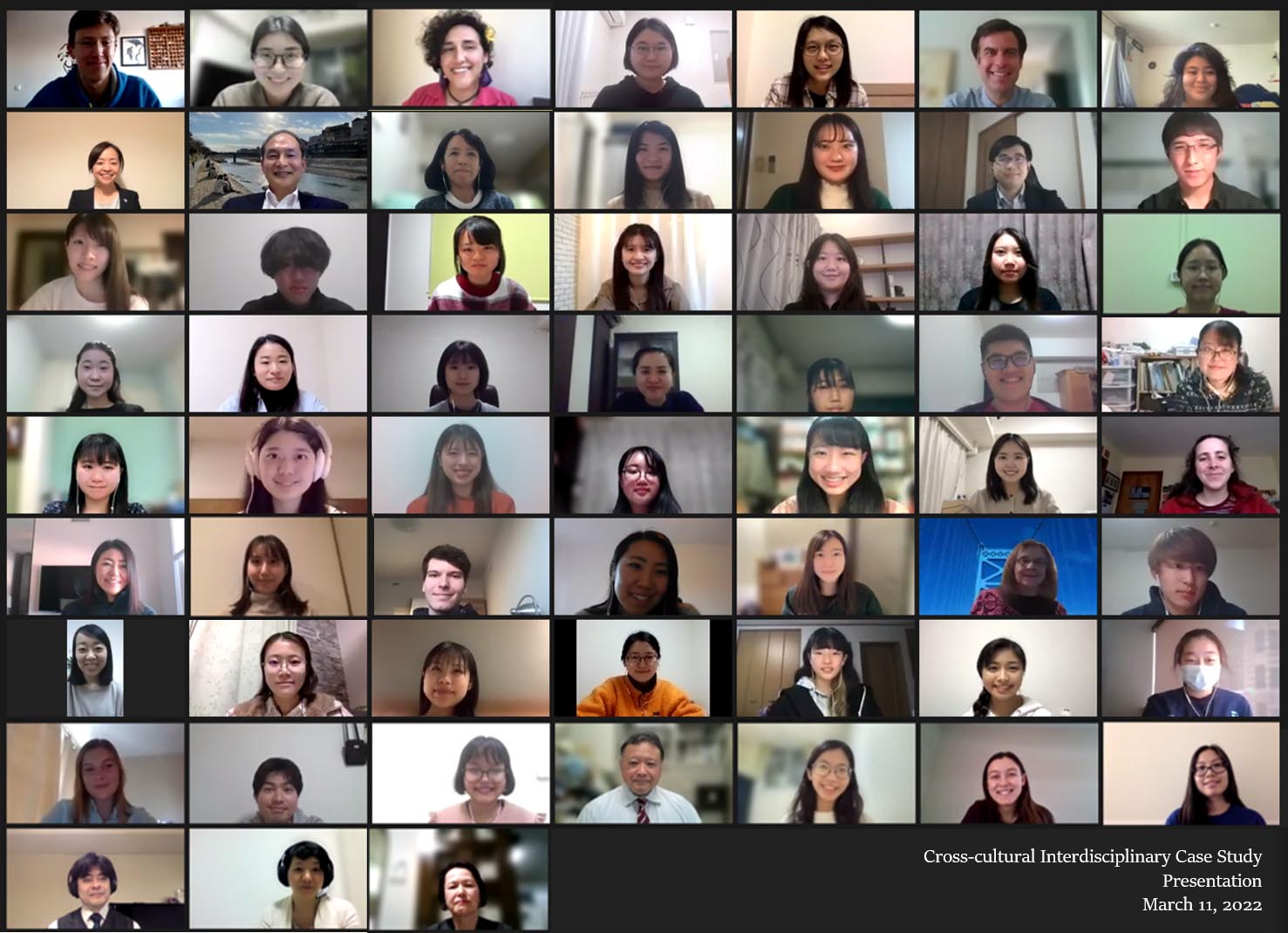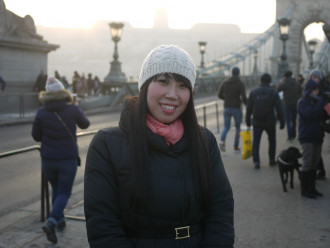
Sayaka Yamato, a fourth-year international student of General Medicine, participated in the online cross-cultural interdisciplinary program held by Kitasato University in Japan. She writes an essay and sends pictures.
I participated in the online cross-cultural interdisciplinary program held by Kitasato University in Japan, which is my home country. The program was about discussing a case study. It was about a post-stroke patient whose family wanted to take care of the patient at home in the future. We participants were divided into several groups and our tasks were, first, to set a goal for the patient and the family, second, to identify each professional’s role. Other than Charles University, eight universities from Austria, Norway, Myanmar, Taiwan and the US jointed. Not only that the locations of the universities were different, but also the students’ majors varied among medicine, nursing, pharmacy, occupational therapy, physiotherapy and other healthcare related ones.

As a medical student, I normally pay attention to what I could do as a future doctor, but practically speaking, the doctor is only a part of a medical team that provides care to patients. In order to achieve better quality, it is inevitable to cooperate with other medical professionals very well. At this moment, our study mainly focuses on what we can do in the hospital. But in a real world, there are quite a few people who receive their treatment at home or are treated on out-patient visits basis. This program made me think about those various medical settings outside the hospital and how I should approach to other professionals.
Regarding the case, the family members might also be the people who need to be taken care of. It was not that hard to picture that they could face mental or psychological difficulties as they were taking care of a person who was difficult to communicate with. Treating patients is the highest priority but from a long-term point of view, doctors also should pay attention to their caregivers. I believe that this could lead to enrich patients QOL eventually.
Through the team discussion, it was clear that my own common sense did not apply to the other peoples’. As for myself, I plan to be a doctor in the third country where I was not born in or have this medical education in. There would be many moments that I have to verbalize and explain why those are what I think and why than when I would work in Japan. I also must listen carefully to people around me vise-versa.
I joined this program as a Japanese student who has lived outside the country. I never had an opportunity to learn academically about my home country’s health care system. Japanese students at Kitasato University filled me in on that. As I wrote above, this was a fruitful experience and I appreciate those learnings that I got through this program.